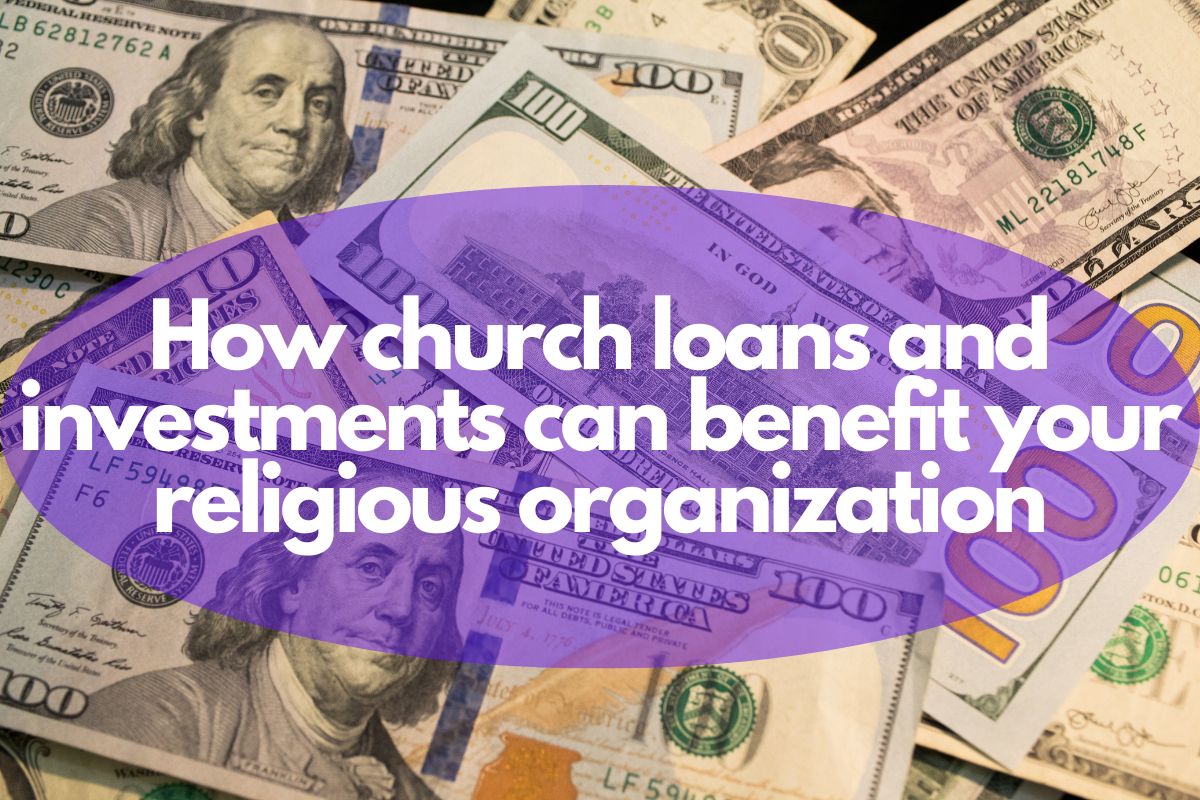Churches play an essential role in communities but often face financial challenges that hinder their growth and outreach efforts. This is where church loans and investments trust come in as viable options for church financing.
If you’re a church leader in Amarillo, Texas, it’s essential to understand the different options available to you for financial support.
This article will explore the ins and outs of Church Loans And Investments Trust Amarillo, Texas, their benefits, risks, and what to consider before taking them out.
We’ll also discuss the advantages and disadvantages of each option, so you can make an informed decision on which route to take.
Furthermore, we’ll look at church loans and investment trusts, which provide a unique approach to financing churches.
By the end of this article, you’ll better understand the various options available to finance your church and how to choose the best one for your needs.
Whether you’re a small community church or a larger religious institution, this article will help you navigate the world of church financing in Amarillo, Texas.
Church Loans And Investments Trust Amarillo TX
Church loans and investments are financial products that cater specifically to the needs of churches and religious institutions.
These products are designed to finance various purposes, such as building a new church, renovating existing facilities, purchasing equipment, or funding outreach programs.
Church loans are typically provided to churches by financial institutions such as banks or credit unions.
These loans are structured in a way that accommodates the unique financial needs of churches, such as long repayment terms, lower interest rates, and flexible payment schedules.
On the other hand, church investments refer to investments made by churches or religious institutions in various financial products, such as stocks, bonds, mutual funds, or real estate.
These investments generate income or profits to support the church’s operations or fund new projects.
Church loans and investments come with benefits and risks, and churches should carefully consider their financial situation and goals before deciding which option to pursue.
It’s also important to work with financial advisors or specialists who understand churches’ unique needs and challenges and can provide guidance and support in selecting the best option.
Church Loan Providers In Amarillo TX
1. Bank Of America
Bank of America offers a variety of church loan options, including construction loans, refinancing, and lines of credit.
2. Plains Land Bank
Plains Land Bank provides financing for rural properties, including churches. They offer various loan options, including long-term fixed rates and flexible terms.
3. FirstCapital Bank Of Texas
FirstCapital Bank of Texas offers church loans for building, refinancing, and remodeling. They provide competitive rates and flexible terms to meet the unique needs of each church.
4. Happy State Bank
Happy State Bank offers a variety of church loan options, including construction loans, refinancing, and lines of credit. They work with churches of all sizes and denominations.
5. PrimeWest Mortgage Corporation
PrimeWest Mortgage Corporation provides church loans for building, refinancing, and remodeling. They offer competitive rates and flexible terms to meet the unique needs of each church.
6. American Church Mortgage Company
American Church Mortgage Company specializes in church financing and provides a variety of loan options, including construction loans, refinancing, and lines of credit.
7. AgAmerica Lending
AgAmerica Lending provides financing for rural properties, including churches. They offer long-term fixed rates and flexible terms to meet the unique needs of each church.
8. Texas Panhandle Mortgage
Texas Panhandle Mortgage provides church loans for building, refinancing, and remodeling. They offer competitive rates and flexible terms to meet the unique needs of each church.
9. Cornerstone Fund Services
Cornerstone Fund Services is a nonprofit organization that provides financing for churches. They offer various loan options, including construction loans, refinancing, and lines of credit.
10. Church Development Fund
Church Development Fund provides financing for churches and other religious organizations.
They offer various loan options, including construction loans, refinancing, and lines of credit, and specialize in working with churches of all sizes and denominations.
Why Churches May Need Loans Or Investments
Churches may need loans or investments for a variety of reasons, including:
1. Building Or Renovating Facilities
Churches may require funds to build new facilities or renovate existing ones to accommodate growing congregations or improve the overall church experience.
2. Equipment Purchases
Churches may need to purchase equipment such as musical instruments, audio-visual systems, or office equipment to support their operations.
3. Outreach Programs
Churches may require funding to support outreach programs such as youth programs, community service projects, or missionary work.
4. Unexpected Expenses
Churches may encounter unexpected expenses such as emergency repairs, natural disasters, or legal fees that require immediate financing.
5. Expansion Of Ministries
Churches may need funds to expand their ministries or start new ones, such as opening a new church branch or launching a new program.
6. Debt Consolidation
Churches may seek loans to consolidate existing debts and reduce interest payments.
By securing loans or investments, churches can ensure they have the financial resources to meet their needs and support their mission.
Overview Of Amarillo, TX And It’s Role In Church Financing
Amarillo, TX, is a city located in the northern part of Texas and is home to a diverse range of religious denominations, including Baptist, Catholic, Methodist, and Presbyterian churches, among others.
As a result, the city has a vibrant and active faith community, with churches playing a vital role in the social and cultural fabric of the city.
Regarding church financing, Amarillo, TX, has a range of financial institutions that provide loans and investment options for churches.
These institutions include national banks, local credit unions, and community development financial institutions specializing in providing financial products and services to faith-based organizations.
Amarillo, TX, also has several non-profit organizations that focus on supporting churches and religious institutions with financing, training, and technical assistance.
These organizations include the Texas Catholic Conference of Bishops, the Texas Baptist Church Loan Corporation, and the Baptist General Convention of Texas.
Furthermore, Amarillo, TX, has a history of supporting churches and faith-based organizations through government funding programs.
For example, the city’s Community Development Block Grant (CDBG) program provides grants to churches and religious organizations for community development projects, such as building renovations, accessibility improvements, and infrastructure upgrades.
Amarillo, TX, has a healthy and supportive environment for churches seeking financing options.
With a diverse range of financial institutions, non-profit organizations, and government programs, churches in Amarillo have access to various financing options to support their mission and activities.
How Do Church Loans Work?
Church loans work similarly to traditional loans, but they have unique features and requirements that cater specifically to the needs of churches.
Depending on the lender and the type of loan, churches may be required to provide collateral, such as church property or assets, and undergo a credit check to qualify for a loan.
Church loans typically have longer repayment terms than traditional loans, often spanning 10 to 20 years, and may have lower interest rates.
In addition, some lenders offer flexible repayment options that allow churches to make smaller payments in the loan’s early years and gradually increase the payments over time.
Benefits And Risks Associated With Church Loans
Benefits
1. Access To Financing
Church loans provide access to funding that can help churches achieve their goals and support their mission.
2. Lower Interest Rates
Church loans often have lower interest rates than other loans, saving churches money in the long run.
3. Longer Repayment Terms
Church loans typically have longer repayment terms than traditional loans, which can make payments more manageable for churches.
Risks
1. Financial Burden
Church loans can become a financial burden if churches cannot make payments or take out more debt than they can handle.
2. Collateral Requirements
Churches may be required to provide collateral, such as church property or assets, which can be at risk if payments are not made.
3. Credit Requirements
Churches may need to meet certain credit requirements to qualify for a loan, which can be challenging for smaller churches or those with limited credit history.
Factors To Consider When Taking Out A Church Loan
Before taking out a church loan, churches should consider the following factors:
1. Loan Amount
Determine how much funding is needed to achieve the church’s goals.
2. Repayment Terms
Understand the repayment terms, including interest rates, payment schedule, and penalties for late payments.
3. Collateral Requirements
Determine what collateral is required and the potential risks associated with using church property or assets as collateral.
4. Credit Requirements
Determine the credit requirements and whether the church is eligible for a loan.
What Are Church Investments?
Church investments are financial products or assets that generate income or profit for religious organizations. These investments can provide churches with additional income to support their operations, fund ministry programs, and support community outreach.
How Do Church Investments Work?
Church investments work by allocating funds to various financial instruments or assets that generate income or appreciate in value over time.
Churches can invest in various types of assets, including stocks, bonds, mutual funds, real estate, and other alternative investments.
Church investments are typically managed by investment professionals or financial advisors who provide guidance and advice on investment options, asset allocation, and risk management.
Types Of Church Investments
There are several types of church investments, including:
1. Stocks
These are investments in publicly traded companies that can provide capital appreciation and income through dividends.
2. Bonds
Bonds are investments in debt securities issued by corporations or governments that provide a fixed income over a set period.
3. Mutual Funds
These pooled investment vehicles invest in a diversified portfolio of stocks, bonds, and other financial instruments.
4. Real Estate
These are investments in properties, such as church buildings, that generate rental income or appreciate in value over time.
5. Alternative Investments
Non-traditional investments, such as private equity, hedge funds, or commodities, provide the potential for higher returns but also come with higher risks.
Factors To Consider When Making a Church Investment
Before making a church investment, churches should consider the following factors:
1. Investment Goals
Determine the investment objectives, such as generating income or capital appreciation, and the time horizon for the investment.
2. Risk Tolerance
Understand the level of risk that the church is willing to take on and the potential risks associated with the investment.
3. Asset Allocation
Determine the appropriate mix of assets, such as stocks, bonds, and alternative investments, to achieve the investment goals and manage risk.
4. Fees And Expenses
Understand the fees and expenses associated with the investment, including management fees, trading costs, and administrative expenses.
5. Tax Implications
Consider the tax implications of the investment, including capital gains, dividend income, and tax deductions.
Comparison Of Church Loans and Investments
Church loans and investments are two options that religious organizations can consider when looking to fund their operations or finance their ministry programs.
Each option has its pros and cons that churches should consider when deciding which option is best for them.
Pros And Cons of Church Loans
Pros
-
Provides Access To Capital
Church loans can provide immediate access to capital that churches can use to fund their operations or finance their ministry programs.
-
Fixed Interest Rate
Church loans typically come with a fixed interest rate, making it easier for churches to budget and plan their payments.
-
Lower Risk
Church loans typically come with lower risk than investments, as the church’s assets or property secures the loan.
Cons
-
Interest Payments
Churches must make regular interest payments on the loan, which can reduce their cash flow and limit their ability to invest in other areas.
-
Debt Obligation
Church loans create a debt obligation that must be repaid, which can limit the church’s financial flexibility and ability to take on additional debt.
-
Limited Financial Upside
Church loans do not provide the potential for financial upside that investments do, as the fixed interest rate does not fluctuate with market conditions.
Pros And Cons Of Church Investments
Pros
-
Potential For Higher Returns
Church investments provide the potential for higher returns than loans, as they can appreciate in value over time or generate higher income.
-
Diversification
Investing in a diversified portfolio of assets can help churches manage risk and reduce exposure to any single investment.
-
No Debt Obligation
Unlike loans, investments do not create a debt obligation that must be repaid.
Cons
-
Higher Risk
Investments come with higher risk than loans, as they are subject to market volatility and fluctuations in value.
- Fees And
Expenses
Investing in financial products typically comes with fees and expenses, such as management fees and trading costs, which can reduce returns.
-
Lack Of Liquidity
Some investments, such as real estate or private equity, can be illiquid and difficult to sell quickly, limiting a church’s ability to access its funds when needed.
Factors To Consider When Deciding Between a Loan or Investment
When deciding between a loan or investment, churches should consider the following factors:
1. Financial Goals
Determine the church’s financial goals, such as generating income or financing a new building, and assess which option aligns best with those goals.
2. Risk Tolerance
Consider the church’s risk tolerance and whether it is willing to take on the higher risk associated with investments in exchange for potentially higher returns.
3. Cash Flow
Evaluate the church’s current cash flow and determine whether it can support regular loan payments or would be better suited for investing in income-generating assets.
4. Time Horizon
Consider the church’s time horizon for the investment or loan and whether it is short-term or long-term.
5. Tax Implications
Understand the tax implications of both options and how they could impact the church’s finances.
Conclusion
Church loans and investments are two options that can help religious organizations in Amarillo, TX fund their operations or finance their ministry programs.
Churches should carefully consider the pros and cons of each option and the factors outlined above before deciding which option is best for them.
By doing so, churches can make informed decisions that align with their values and support their long-term financial health.
Whether a church chooses to pursue a loan or an investment, it’s essential to work with a reputable financial institution that understands the unique needs of religious organizations and can provide tailored solutions.
With the right approach, churches in Amarillo, TX, can access the capital they need to thrive and positively impact their communities.





